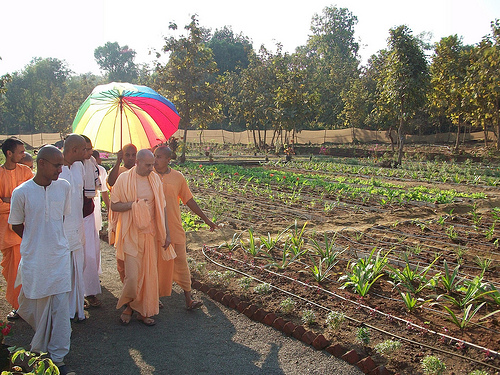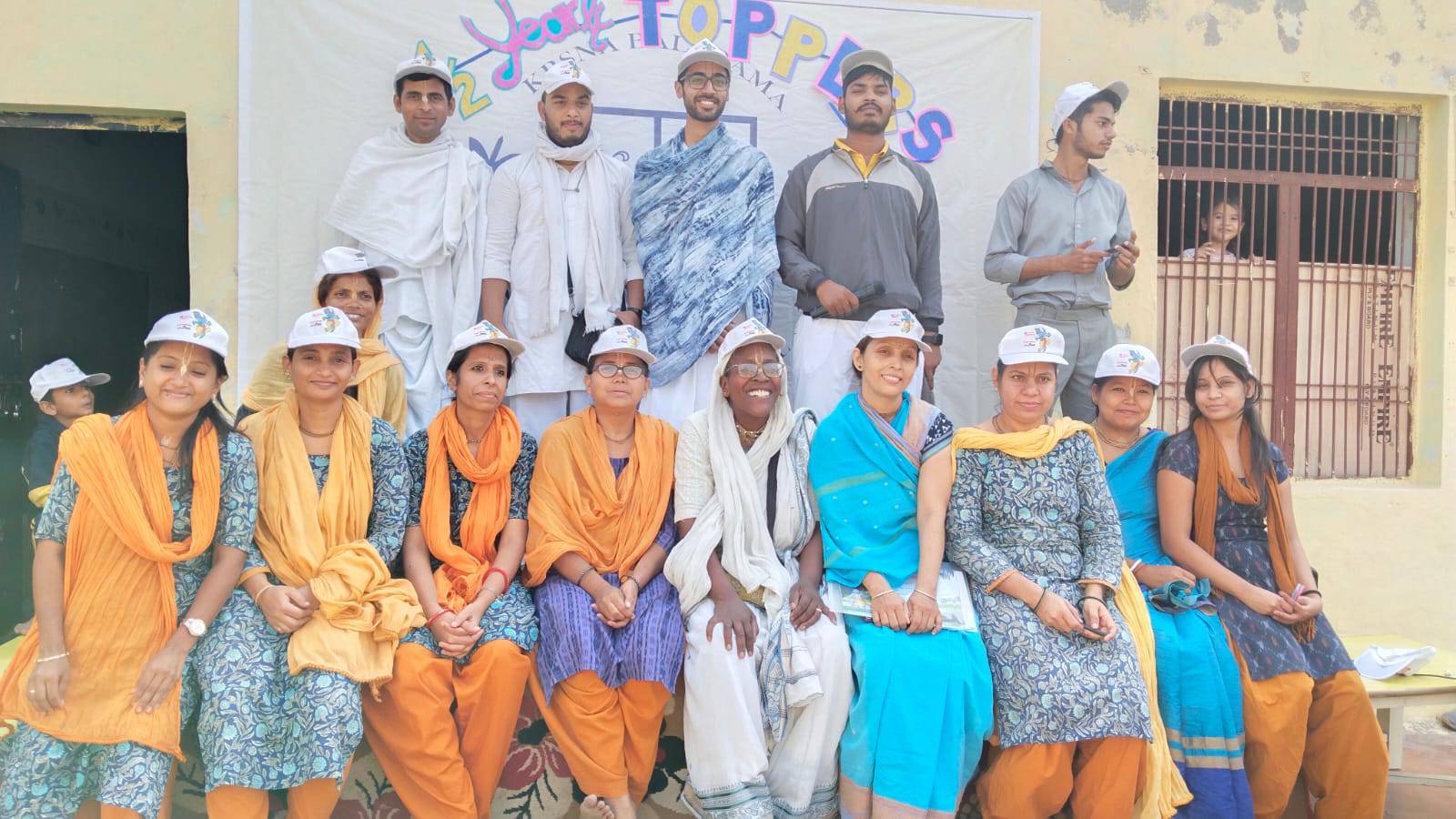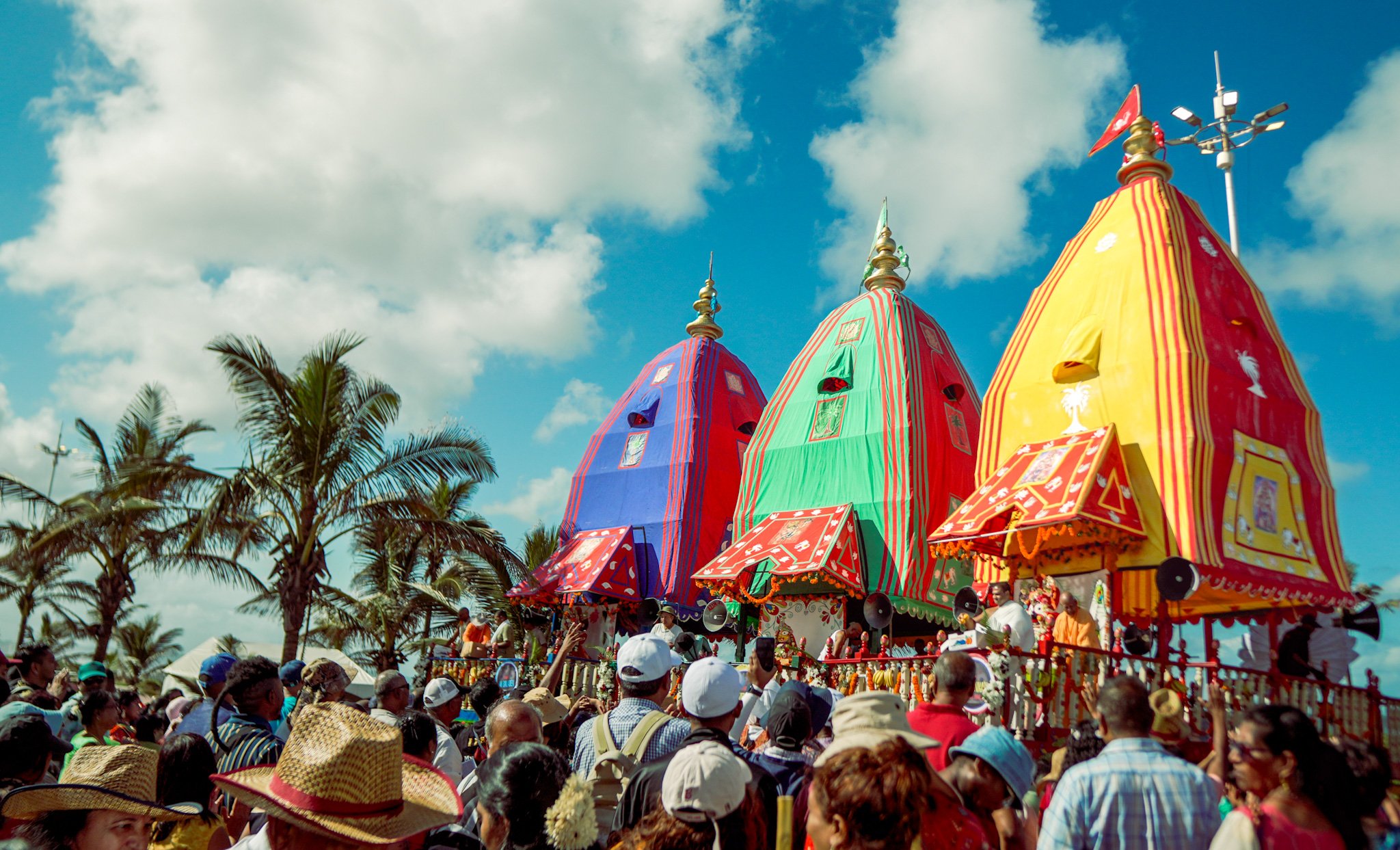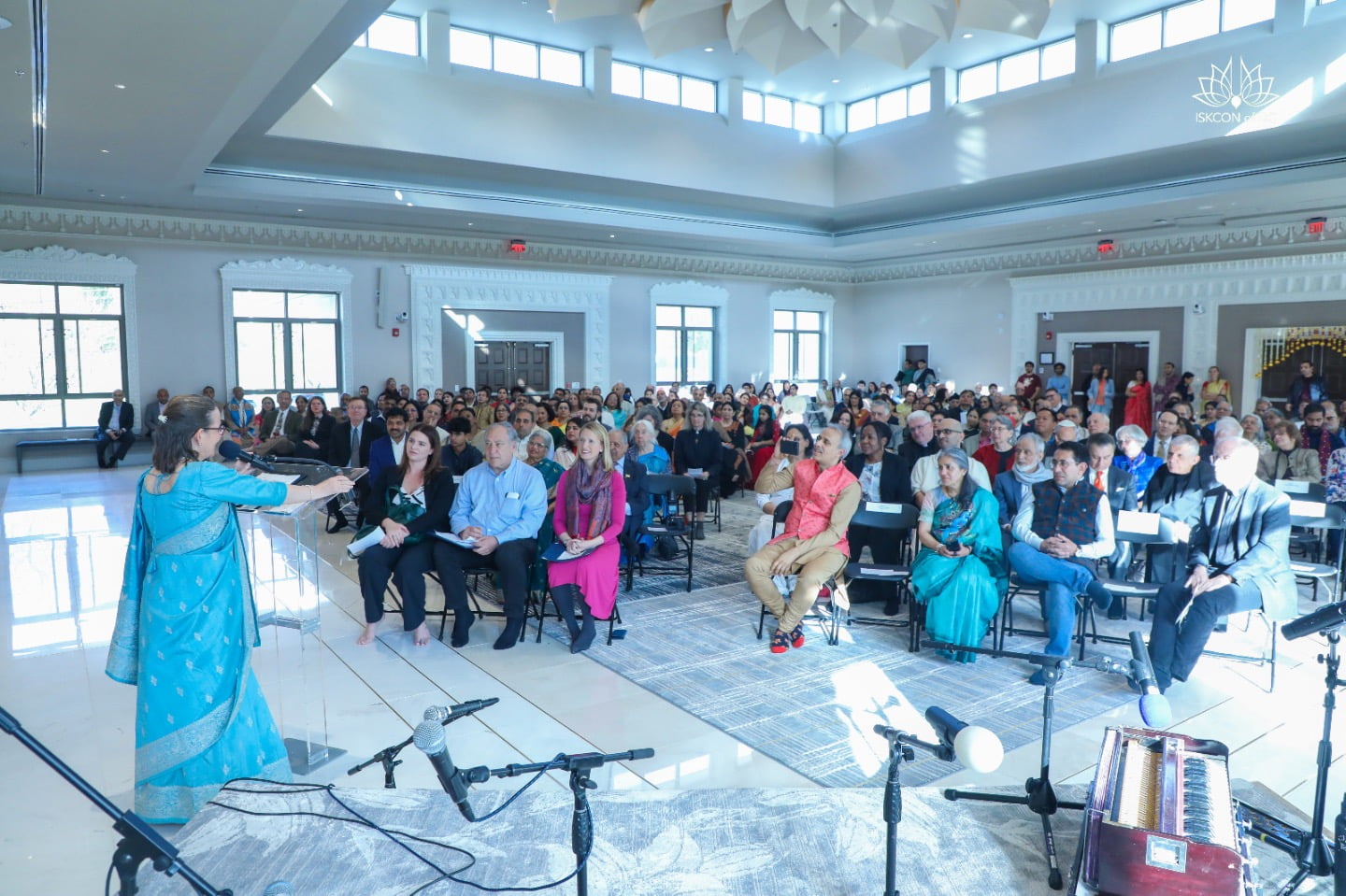Radhanath Swami Inaugurates Maharastra Eco-village
By Contributor | Jan 13, 2012

On December 24th Radhanath Swami presided over the official opening of the Govardhan Eco-village and Farm Community (GEV) spread over a scenic landscape of 60 acres near the Sahyadri mountain range, a two hour drive from the city of Mumbai in Maharashtra, India. The inauguration ceremony was marked with the presence of Mr. Nana Saheb Patil, the Ex-secretary of the Agricultural Ministry for the Government of Maharashtra, and 150 senior members of the Radha Gopinath temple congregation.
Under the inspiration and guidance of Radhanath Swami a dedicated community began the development of the GEV in 2003 with the aim of demonstrating the principles of self-sufficiency and localized economy and highlighting the importance of living in harmony with nature by presenting a sustainable living model. Gradually they have developed fundamental aspects of the eco-village including organic farming, cow protection, education, rural development, alternative energy, eco-friendly constructions and sustainable living.The inauguration marked the opening of the eco-village as a retreat center with green design cottages, auditorium, seminar and conference rooms, an Ayurvedic wellness center, and a yoga center. With these latest developments the GEV will serve as a place of education in the fields of the traditional sciences of Yoga and spirituality.

The opening ceremony began in the morning with a small parade of bullock carts and guests who were led by Radhanath Swami, accompanied by kirtan, from the main entrance of the village to its centrally located new auditorium. There, Radhanath Swami shared the vision and dream behind the creation of Govardhan Eco-village. He mentioned that it was the desire of his guru A.C. Bhaktivedanta Swami Prabhupada to develop such projects away from cities to serve as a place for people to find relief from stress using spiritual practices. ”Simple living, high thinking is the principle that is the basis of this rural community”. Radhanath Swami added “though we all have individual mothers, Mother Earth is the mother of all life on the planet. Thus Mother Earth is common to all of us and we are heavily dependent on her. Living in harmony with Mother Earth is a big responsibility. This is a most important sacred principle we must remember.”

While thanking those involved in the project he spoke of the mood in which they worked saying that the whole project is conceived in the spirit of devotion and keeping God as the center. “We can build structures but if we don’t cultivate non-envious, egoless camaraderie inside then the structure is as good as empty.”
The Govardhan Eco-village has been built for the modern lifestyle needs of both individuals and corporate groups. It hopes to serve as a model of how spirituality can integrate the needs of a modern society with traditional answers. All we need to remember is, as Radhanath Swami says, “In the quest for technology we keep taking from mother earth, but as we grow we should reciprocate.”

The structures of the eco-village are made of natural materials such as cob, rammed earth and Compressed Stabilized Earth Blocks which are made by compressing a combination of earthen materials with added stabilizers without the use of furnaces to heat the bricks. The natural property of earth changes when it is heated. The use of raw mud for building houses has many advantages – its local availability and ease of processing makes it the most energy efficient building material. Houses made of earth give warmth in cold atmospheres and provide a cooling effect in hotter climates.
Some other ways the eco-village strives to live in harmony with Mother Earth:.
– In consultation with organic farming experts, all inputs and outputs are natural
– Only indigenous varieties of grain are grown
– Instead of chemical fertilizers, cow dung and natural compost are employed
– Cow urine and neem oil serve as organic pesticides
– Bulls are favored over machinery for plowing
– Solid waste management and waste water treatment center minimize its carbon footprint
– For alternative energy a bio-gas plant has been established to generate electricity for uses such as water pumping and irrigation
– Solar energy provides energy for street lights and water heaters
– Cottage industry manufactures various cow-based products
– 20 different types of vegetables, 10 varies of fruit, 9 varieties of flowers and 4 kinds of grains are grown on the farm












